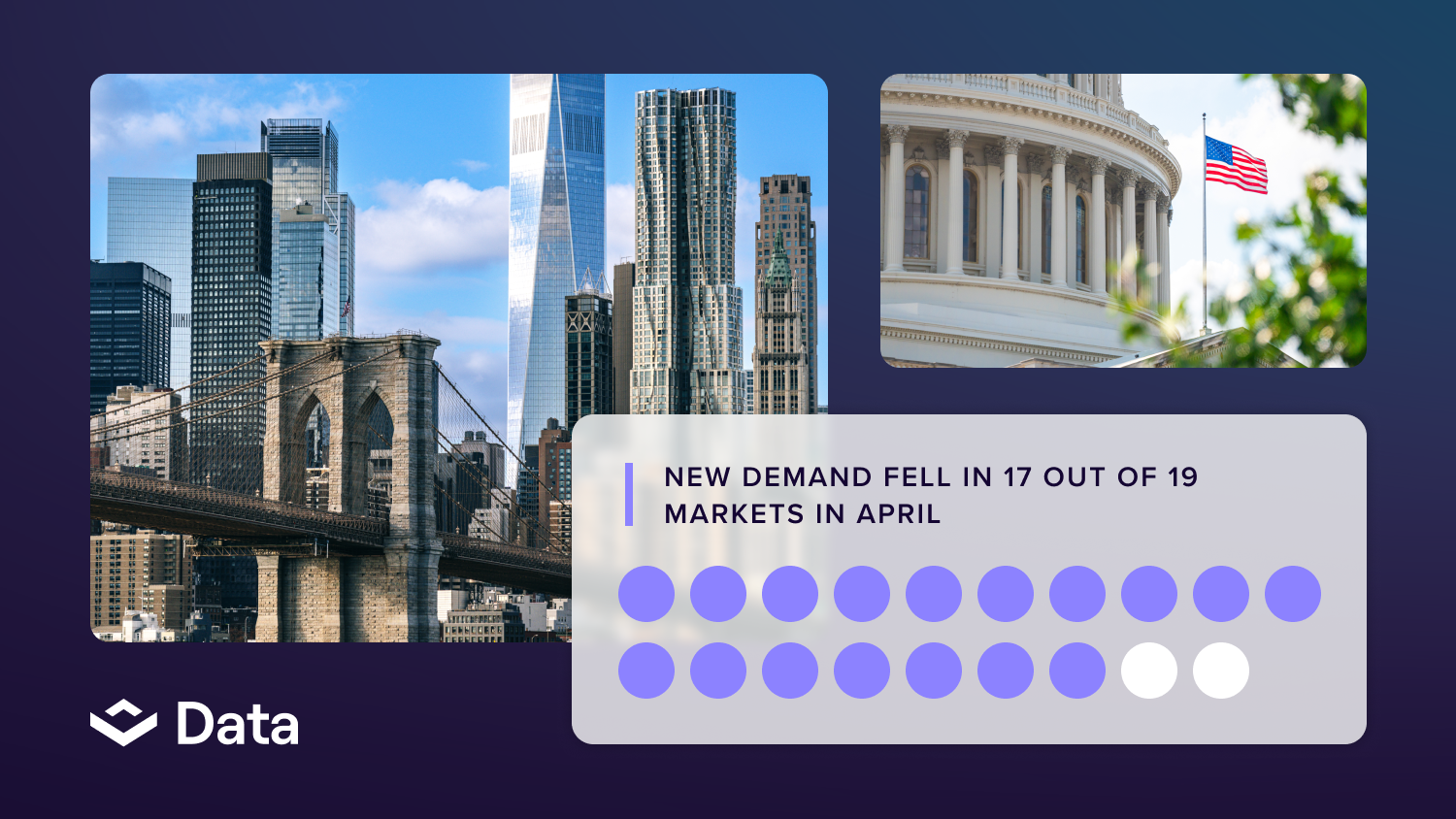The world of commercial real estate wouldn’t be the global economic powerhouse it is without the influence of highly-skilled commercial real estate brokers. Investors, landlords, and tenants all rely on the expertise of commercial brokers to help them buy, sell, and rent commercial real estate.
But what exactly do these professionals do, and how can you leverage their skillset to make your next commercial real estate transaction a success?
In this article, we’ll cover the basic responsibilities of a commercial real estate broker, pinpoint how they’re different from CRE agents, and highlight the value they add to your commercial real estate deals.
What is a commercial real estate broker?
In a commercial real estate transaction, a commercial real estate broker is a skilled real estate professional who works on behalf of a buyer, seller, landlord, or tenant to ensure the best possible outcome for their client, whether that client is buying, leasing, or selling a property.
Brokers earn a commission from the total sale price or total rent collected during the term of a lease for any commercial property transaction they facilitate, whether they’re acting on behalf of the buyer, seller, landlord, or tenant. The dollar amount of commissions varies widely based on the amount of the transaction, but it averages 3-6%.
According to the Bureau of Labor and Statistics, there are 52,310 real estate brokers in the U.S., but this number includes both commercial and residential real estate brokers, and it excludes brokers that are self-employed. According to IBIS World, there are 2,432,860 commercial real estate firms in the U.S. as of 2023, indicating that the number of commercial real estate brokers is likely much higher.
Commercial real estate broker vs. commercial real estate agent
What is the difference between a commercial real estate broker and a commercial real estate agent? The main differences are education, experience, and privileges.
Commercial real estate broker education requirements
To obtain a basic real estate license, both CRE brokers and CRE agents must be 18 years of age or older and have a high school diploma or its equivalent. While licensure requirements vary by state, most require a minimum of 60 hours of training and a state and national real estate license exam. However, to earn a commercial broker license, an agent must take additional training hours and pass an advanced broker exam.
Commercial real estate broker experience requirements
Most CRE brokerages require their brokers to have a minimum of three years of commercial real estate experience before hiring them on as a broker. Why? Commercial real estate brokers need a firm grasp of property law, best practices, zoning regulations, tax law, market data, and the ability to conduct detailed financial analysis for clients who want to invest. Also, unlike real estate agents working with residential properties, commercial real estate brokers work with a wide variety of commercial properties, from office space to hotels to retail stores, so it’s essential for them to be able to navigate the complex legal landscape commercial real estate entails.
Commercial real estate broker privileges
A commercial real estate agent is not allowed to work independently of a broker, but a commercial real estate broker can fly solo. Brokers can also work together in a brokerage firm where they employ other brokers and agents. Commercial real estate brokers often get a cut of the commission of agents working under them, so they can make more money than commercial real estate agents.
What does a commercial real estate broker do?
Most brokers work in both acquisitions and dispositions, and often at the same time, though not usually for the same property.
Acquisitions (buying) and leasing
A buy-side broker works on behalf of a client who is buying or renting commercial real estate. The broker’s role will be slightly different depending on whether they’re working with a client planning to occupy the property for business purposes or working with an investor looking to turn a profit.
For business clients, a commercial real estate broker works with their client to determine what they need in a commercial space to make their business succeed. This can include things like inventory storage space, a high-speed digital network, a strong local workforce, customer parking, or room to expand. The broker then scours listing services and uses their knowledge of available inventory and their contacts to help the client find the perfect property to buy or lease.
If a broker is working with an investor, the broker will identify the investor’s investment goals and then use data and market analysis to calculate various properties’ likely ROI. They do this based on factors like its condition, location, and property management, which help them determine its current and projected net operating income (NOI).
For both investors and business clients, once it’s time to sign on the dotted line, a broker helps navigate the process of contract negotiation and lease terms, ensuring that their client gets the best possible terms to help them avoid hidden fees, shady clauses, and other potential contract pitfalls.
Dispositions (selling) and leasing
A sell-side, or listing broker works with clients who are investors, property owners, or landlords to either sell or lease out property. These types of clients share similar goals, and so the broker’s job is similar for both leasing and selling a property.
When working with a landlord or property owner, a broker uses their contacts, networks, and marketing skills to target qualified tenants looking for commercial space and match them with their clients’ properties. A listing broker also helps arrange tours of the client’s property for both prospective tenants and other agents and brokers. Once a buyer or tenant has been found, the broker then assists their clients in setting reasonable rental rates and lease terms to ensure a favorable (and profitable) outcome.
Likewise, when working with a property owner or investor looking to sell, the broker will leverage their experience and network to identify and target potential buyers in order to help get the best sales price for their seller. The broker will also help navigate the contract process to ensure the most favorable terms for their client.
Dual representation (simultaneous acquisition and disposition)
Can a broker work as a buyer’s (or tenant’s) broker and a seller’s (or leaser’s) broker on the same property deal? Yes, and it’s known as dual representation. It’s illegal in a handful of states, but where it is legal, the broker must disclose that they are acting as dual representation, and all parties must agree to it in writing.
Benefits of using a commercial real estate broker
Steep CRE brokerage fees can make it tempting to skip the middleman and go it alone when it comes to buying, selling, or leasing commercial real estate, but doing so is a lot like representing yourself in court: You may pull it off, but without proper training you run a dangerously high chance that the resulting outcome won’t be in your favor.
Whether you’re a tenant, landlord, investor, or seller, having a commercial real estate broker on your team comes with a significant number of benefits.
Benefits for tenants
Brokers
- Are well connected in the commercial real estate industry and may know of spaces about to come up for lease, giving you more options.
- May specialize in your specific commercial property needs (like industrial or retail space) and better understand what you’re looking for and where to find it.
- Are familiar with leasing rates for comparable commercial properties, so they can help you get the best rates and terms for your lease.
- May have worked with property owners and landlords in the past and know the best strategies for negotiating with them.
- Use high ethical standards and best practices when it comes to adhering to tax laws, zoning regulations, and other legal guidelines so you can avoid messy legal hassles.
Benefits for landlords
Brokers
- Are familiar with competing local commercial properties and can help you make yours stand out from the pack.
- Have networks and business contacts that can provide leads to potential tenants, giving your leasable spaces more targeted visibility.
- Can take on time-consuming tasks like listing and marketing your property, giving tours to potential tenants, and following up with leads to reduce vacancies.
- Can vet potential tenants ahead of time to ensure you get qualified, hassle-free renters.
- Can ensure your lease agreements offer you sufficient protection and ROI, while still giving tenants favorable terms for more lease renewals.
Benefits for investors
Brokers
- Are skilled in commercial real estate investment analysis, and can help you determine which properties will give you the most bang for your buck.
- Have a thorough knowledge of zoning regulations, tax laws, municipal codes, and other policies or rules that could impact how you use a commercial property or its value.
- Are familiar with market conditions to help you identify if a property is priced well, or if you should negotiate a lower price.
- Can leverage their connections in the commercial real estate industry to find properties that may not be publicly listed, or may not yet be on the market, giving you more options.
- Can identify potential pitfalls or tricky clauses in sales contracts so you can avoid legal snags later down the road.
Benefits for sellers
Brokers
- Understand how things like NOI and ROI in the CRE industry work, so they can create a marketing strategy that shows off your property’s investment potential to prospective buyers.
- Know the market and can ensure you list your property at a competitive price that still nets you high returns.
- Are connected in the commercial real estate industry, with access to a large pool of potential buyers looking for exactly the type of property you’re selling.
- Have the time and resources to market your property, list it across multiple listing services, offer property tours, and promote it among commercial agents and brokers.
- Know the ins and outs of contract negotiation to protect you from potential pitfalls when it comes time to sign on the dotted line.
How to find a good commercial real estate broker
Just like any big commitment, shopping around is a must when it comes to finding a good commercial real estate broker. Get recommendations from friends, colleagues, and others in your network. Meet with several commercial real estate brokers to ensure they’re fully licensed in your state, check the quality of their listings, learn what their fees are, and ask about their availability to work with you.
Keep in mind that some commercial brokers specialize in specific areas of commercial real estate, like restaurants or healthcare. It can be to your advantage to seek out a broker with a specialty in your industry, as they will know the ins and outs of what you need better than a non-specialized broker.
How VTS works with commercial real estate brokers
Between tracking inventory, marketing properties, and managing client relationships, commercial real estate brokers have a lot on their plates. Here are just a few ways that VTS makes a broker’s job easier:
- Track real estate deals from start to finish in a single location, with real-time updates and comment features that allow all stakeholders to stay abreast of developments
- Create appealing listings and property pages with photos, virtual tours, and accurate specs for every property; easily compare listings to find the best match for a client
- View data feedback from marketing campaigns to determine how to steer marketing strategies for optimal ROI
- Create reports, proposals, letters of intent, and other essential documents right in the VTS app
Learn more about how VTS helps commercial brokers and their clients succeed at VTS.com.





